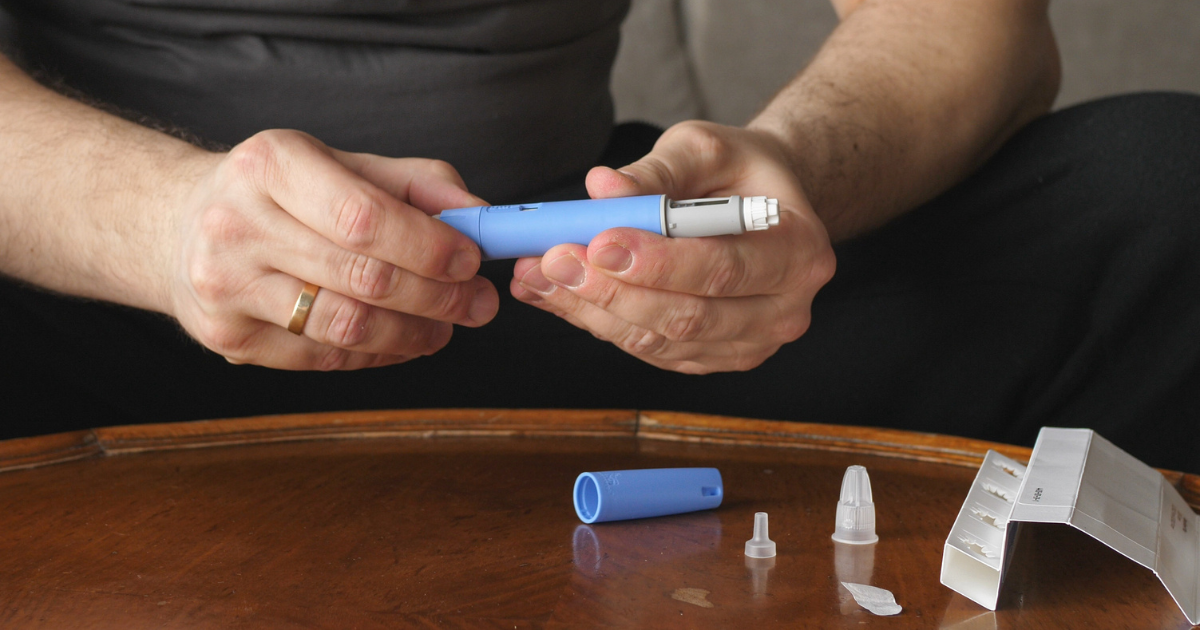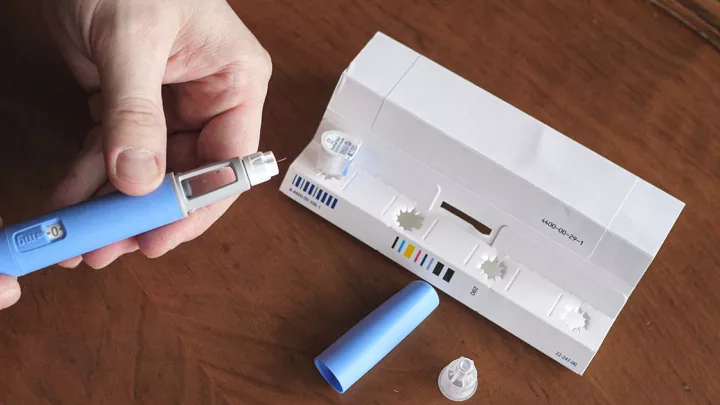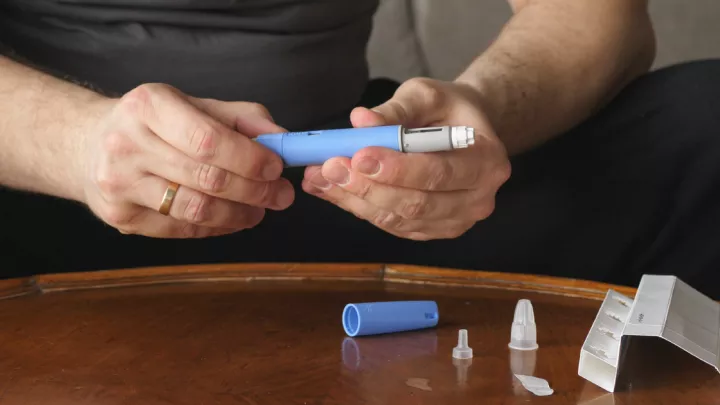Can medications like Ozempic® and Wegovy® decrease your stroke risk?

Interest in Ozempic® and Wegovy® has skyrocketed as the drugs have helped people lose weight. However, there is increasing evidence their benefits aren’t limited to weight loss.
While research is rapidly evolving, vascular neurologist Pierre Fayad, MD, says drugs like Ozempic® and Wegovy®, part of a medication class called GLP-1 agonists, are showing a range of promising results beyond diabetes treatment and weight loss.
Diabetes is one of the major risk factors for stroke and heart disease. Excessive weight or obesity is not strictly associated with stroke risk but increases the risk of diabetes and hypertension.
“Even if you have pre-diabetes or insulin resistance, which is associated with obesity, you are at an increased risk of stroke and heart disease,” Dr. Fayad says. “These GLP-1 agonists reduce weight, improve insulin resistance and seem to be effective at preventing diabetes and lowering the risk of heart disease and stroke.”
Researchers recently found that the risk of cardiovascular events dropped by around 20% in participants taking semaglutide, the active ingredient in Ozempic® and Wegovy®. They studied individuals who were not diabetic but had excessive weight, obesity and cardiovascular diseases. A previous study of GLP-1 agonists showed a lower risk of nonfatal stroke in participants with diabetes.
“Clearly, evidence is accumulating that semaglutide is associated with a lower risk of heart disease and stroke in diabetics and those who are obese with cardiovascular diseases,” Dr. Fayad says. “At the same time, there are also side effects and expenses related to these medications to consider.”
Dr. Fayad notes that the precise mechanism by which semaglutide reduces the chance of stroke and other risk factors is not yet fully understood.
Back to the basics
Regardless of medication options, adopting healthy lifestyle choices remains the tried-and-true strategy to help lower your risk of stroke and other health issues, according to Dr. Fayad.
“There is a lot of hope with these medications to lower weight and improve health outcomes,” he says. “But it doesn’t mean you can go crazy eating anything. Following the basics is critical.”
To decrease stroke risk, Dr. Fayad recommends:
- Lowering cholesterol levels. People can reduce their cholesterol by 20% to 30% through a healthy diet and exercise. If you have already had a stroke, the “bad cholesterol” LDL should be kept below 70 mg/dL.
- Managing blood pressure. Blood pressure should be as close as possible to 120/85 mm Hg. An inexpensive blood pressure device can be used at home to regularly check your blood pressure.
- Avoiding or managing diabetes. If you have diabetes, preferably keep your HbA1C level under 7%.
- Eating healthily. Dr. Fayad says managing your diet is critical. Consuming one teaspoon less salt each day may be as effective as taking a medication to lower blood pressure.
- Abstaining from smoking and street drugs. Cigarette smoking and using street drugs significantly increases the risk of stroke and heart disease.
- Avoiding excessive alcohol use or binge drinking. Moderate drinking, or one to two alcoholic beverages a day, may remain a reasonable option, but excessive or binge drinking significantly increases the risk of stroke.
- Exercising regularly. The Centers for Disease Control and Prevention recommends at least 150 minutes of moderate-intensity exercise and two days of strength training per week.
- Maintaining a healthy weight. Losing weight if you are overweight and keeping your weight within a healthy range lowers your risk of developing many serious health problems.
- Taking charge of your health. Dr. Fayad recommends patients monitor key health indicators, know their health goals and work with their providers to aim for them.
While medications like Ozempic® and Wegovy® show promise in decreasing stroke risk, our understanding of their impact is still developing. However, the fundamentals of nutrition, exercise and overall health management should always be prioritized, alongside any medication options available.







